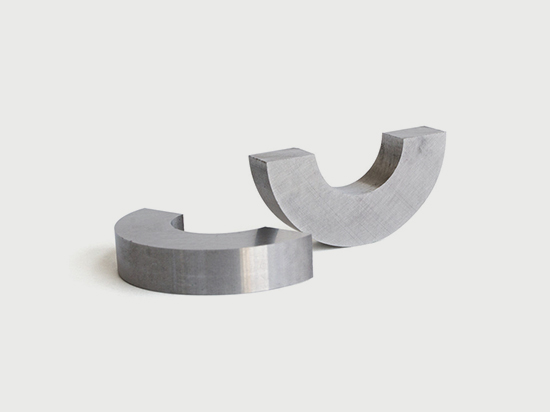AlNiCo Magnets
AlNiCo (Aluminum – Nickel – Cobalt) magnets are commonly used in many industries, such as in electric motors, sensors, loudspeakers, guitar pickups, and magnetic lifters. They are normally chosen for some particular applications that require high temperature resistance, such as inside ovens that perform the function of subjection or detection.

Anisotropi o isotropi
AlNiCo magnets are composed, in addition to the ferromagnetic Aluminum-Nickel-Cobalt alloy, also of other alloying elements, such as titanium, niobium and copper which are added in smaller quantities to promote the growth of the magnetic crystal and improve its coercive force.
AlNiComagnets can be produced through the sintering or fusion process; with the fusion process it is possible to obtain particular shapes that cannot be obtained with the standard sintering process, as well as providing better magnetic performance. Through sintering process, on the other hand, excellent mechanical properties are obtained, despite having lower magnetic performances than the magnet obtained through fusion.
AlNiCo magnets could be also divided in anisotropic or isotropic magnets. Anisotropic AlNiCo magnets are treated and cooled to obtain the maximum magnetic force, having the flux lines oriented in a single direction. Isotropic magnets, on the other hand, can be magnetized in any direction while maintaining the magnetic properties unchanged, which will however be lower than anisotropic magnets.
AlNiCo magnets are very fragile and hard, which is why it is not possible to drill or work them except with specific machines and procedures, they must also be handled with care as having a low coercive force compared to other types of magnets, it is much easier than demagnetize if placed near other magnetic fields. However, this type of magnet has a high resistance to corrosion and therefore makes a surface coating unnecessary.
AlNiCo magnets, even if very often replaced by Neodymium magnets, cheaper and more easily available, are the best choice when you need high magnetic properties (in fact, superior to those of ferrite), and high resistance to the temperature (the Curie temperature is around 800°C), which Neodymium magnets cannot provide.
For more information about this type of magnet, or if you wish to send us your project and discuss it together, contact us at vendite@odbmagneti.com.
Cerchi maggiori informazioni?
Contattaci e richiedi un preventivo personalizzato.
